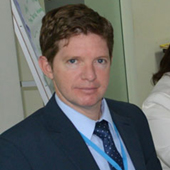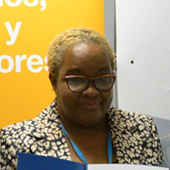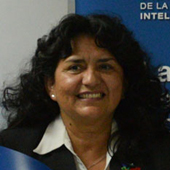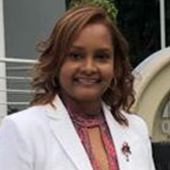What our participants say
As more teachers learn to appreciate the fundamentals of intellectual property they are able also to meaningfully diversify their lesson plans, bring youth closer to their creative and inventive potential, and contribute to shaping relevant educational curricula. Many are already exploring how best to prepare youth for wider opportunities beyond employment to business enterprise. They actively encourage creative students and their mentors to showcase inventions at science fairs and competitions.

Fernando Garcete Chief Compliance Officer, National Directorate of IP, ParaguayWhat I learned during the four days of the seminar was very useful as I now have new knowledge and educational material that I would like to share with others in my country for the purpose of finding the best way to implement a national IP curriculum in schools.
I would also like to highlight that the alternation of lectures and workshops, combining individuals from different nationalities, throughout the seminar was very enjoyable and enriching. Thanks to this seminar, I will take this information back to DINAPI to see how to develop strategies with the Ministry of Education on implementing IP education in my country. Listening to the experiences of teachers in my region was very useful as well.

Winne Berry Deputy Chief Education Officer, Ministry of Education, JamaicaI really enjoyed this IPCC training. It was interactive, informative and creative in its demonstration.
For the first time, IP education has the perspective of enabling creativity and innovation. Such a training is timely in providing a tool to drive sustainable development and sustainable IP education.

Tania Milenka Cárdenas Troncoso Peruvian school teacherAfter having participated in the seminar, I am convinced that it is necessary to develop IP education in schools beyond its existing scope in order to connect it to creativity and innovation. This would help us motivate our very creative and diversely talented students to value their creativity through IP and continue to passionately produce creative and innovative outputs for society.
As our National Curriculum of Basic Education aims to develop critical and creative thinking and is based on transversal approaches such as rights, the orientation to the common good or the pursuit of excellence in taking on an active citizen role in regards to IP is also a very important when teaching the young.

Elena Roxana Vișan Social Sciences Teacher, Queen Marie National Pedagogical College, RomaniaI love my profession and I want to continue inspiring students to tap into their creativity because they are the light of our society. My dream is to promote the importance of IP because it is a new paradigm for human development that the nation needs for socio-economic growth.

Nisa Suepaul Curriculum Officer, Lakshmi Girls’ Hindu College, Trinidad and TobagoI realized that taking notes and memorization were not as effective as teaching methods that encourage students to use their creativity. I hope to see a greater focus on IP at every level of the education system in the near future. And I will always make sure to impart my knowledge of IP rights to my students, children and friends.